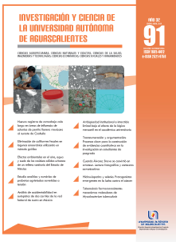Commitment and liminal interstice under the effect of commercial logic in the university researcher
DOI:
https://doi.org/10.33064/iycuaa2024914434Keywords:
Knowledge transfer, science and research administration, organizational change, organization studiesAbstract
This article places its interest in proposing a reinterpretation of some aspects of knowledge transfer from the university academic. The identity ambivalence of the entrepreneurial researcher who participates in the transfer of knowledge in a Mexican public university is analyzed. The methodology that supports the results was supported from a qualitative perspective. The discursive expressions of researchers were documented, obtained through semi-directed interviews, complemented with documentary analysis and material collected through indirect observation at a state university in the center of Mexico. The central discussion emphasizes the existence of fragmented and ambiguous processes that, in a Hispanic American context, configure an identity gap that creates a liminal space. The main finding of the research consisted of the identification of different institutional logics that converge in the university academic, generating a process of identity ambiguity, a source of deep individual and collective tensions.
Downloads
References
• Acosta, I. (2021). ¿Deterioro del trabajo científico? Revisión de la literatura con énfasis en universidades de México. En Ibarra, L. Díaz, M., Roitman, P. y González, S. (Coords). Política Educativa: Debates, acuerdos y omisiones (pp. 129-150). Universidad Autónoma de Querétaro.
• Barfield, T. (2001). Diccionario de Antropología. Barcelona: Ediciones Bellaterra.
• Clarysse, B., Andries, P., Boone, S., Roelandt, J. (2023). Institutional logics and founders' identity orientation: Why academic entrepreneurs aspire lower venture growth. Research Policy, 52 (3), 104-113. https://doi.org/10.1016/j.respol.2022.104713 DOI: https://doi.org/10.1016/j.respol.2022.104713
• Czarniawska, B., y Mazza, C. (2003). Consulting as a liminal space. Human Relations, 56 (3), 267-290. https://doi.org/10.1177/0018726703056003 DOI: https://doi.org/10.1177/0018726703056003612
• Ellis, N. y Ybema, S. (2010). Marketing identities: shifting circles of identification in inter-organizational relationships. Organization Studies, 31 (03), 279-305. https://doi.org/10.1177/0170840609357397 DOI: https://doi.org/10.1177/0170840609357397
• González, F. (2006). Investigación cualitativa y subjetividad (pp. 17-35). Universidad de San Carlos.
• Gulbrandsen, M. (2012). “But Peter’s in it for the money” – the liminality of entrepreneurial scientists. (Working papers on innovation studies No. 20120323). Oslo: Centre for Technology, Innovation and Culture, University of Oslo. Recuperado de: https://www.researchgate.net/publication/254452315_But_Peter's_in_it_for_the_money-The_liminality_of_entrepreneurial_scientists
• Hall, R. (1996). Organizaciones: estructuras, procesos y resultados. Nueva Jersey: Prentice-Hall.
• Kuckartz, U. (2014). Qualitative text analysis. London: SAGE Publications Ltd.
• Meyer, R. (2008). New sociology of knowledge: historical legacy and contributions to current debates in institutional research (pp. 519-538). En R. Greenwood, C. Oliver, R. Suddaby y Sahlin, K. Handbook of organizational institutionalism. London: Sage Publications. DOI: https://doi.org/10.4135/9781849200387.n22
• Reyes, D., Siqueira M., y Agnes A. (2023). Motivations for university-industry interaction: a typology of academic scientists at the National University of Colombia. Innovar, 3 (92), 1-29. https://doi.org/10.15446/innovar.v34n92.99300 DOI: https://doi.org/10.15446/innovar.v34n92.99300
• Rondeau, K., Dillon J., Mansour N., Daniels J. (2022). Managing Knowledge and Identity across the Boundary of Academic and Commercial Science. 17th European Conference on Innovation and Entrepreneurship. Proceedings 17 (1), 432-440. https://doi.org/10.34190/ecie.17.1.791 DOI: https://doi.org/10.34190/ecie.17.1.791
• Shelley, M. (2004), Frankenstein o el moderno Prometeo. Barcelona: Rbalibros. Recuperado de: Libros en Red https://web.seducoahuila.gob.mx/biblioweb/upload/Frankenstein%20o%20el%20moderno%20Prometeo-libro.pdf
• Soderlund, J., y Borg, E. (2017). Liminality in management and organization studies: process, position and place. International Journal of Management Reviews, 20 (4), 880-902. https://doi.org/10.1111/ijmr.12168 DOI: https://doi.org/10.1111/ijmr.12168
• Sturdy, A., Schwarz, M., y Spicer, A. (2006). Guess who’s coming to dinner? Structures and uses of liminality in strategic management consultancy. Human Relations, 59 (7), 929-960. https://doi.org/10.1177/0018726706067597 DOI: https://doi.org/10.1177/0018726706067597
• Tempest, S. y Starkey, K. (2004). The effects of liminality on individual and organizational learning. Organization Studies, 25 (4), 507–527. https://doi.org/10.1177/0170840604040674 DOI: https://doi.org/10.1177/0170840604040674
• Thornton, P., Ocasio, W., y Lounsbury, M. (2012). The institutional logics perspective. A new approach to culture, structure, and process. Oxford: Oxford University Press. DOI: https://doi.org/10.1093/acprof:oso/9780199601936.001.0001
• Thornton, P., y Ocasio, W. (2008). Institutional Logics. En R. Greenwood, C. Oliver, R. Suddaby y K. Sahlin, Handbook of organizational institutionalism (pp. 99-129). London: SAGE Publications Ltd. DOI: https://doi.org/10.4135/9781849200387.n4
• Turner, V. (1969). El proceso ritual. Estructura y antiestructura. Altea, Taurus, Alfaguara
• Van Gennep, A. (1960). Rites of passage. Routledge and Kegan Paul. DOI: https://doi.org/10.7208/chicago/9780226027180.001.0001
• Vázquez, A. (2015). Configuraciones de las relaciones de poder intragénero en una organización. El caso del personal operativo de una prisión urbana de la Ciudad de México. Revista Científica de UCES, 19(1), 192-230. Recuperado de http://dspace.uces.edu.ar:8180/xmlui/handle/123456789/3320
• Vogl, S., Schmidt, E. y Zartler, U. (2019). Triangulating perspectives: Ontology and Epistemology in the Analysis of Qualitative Multiple Perspective Interviews. International Journal of Social Research Methodology, 22(6), 611- 624. https://doi.org/10.1080/13645579.2019.1630901 DOI: https://doi.org/10.1080/13645579.2019.1630901
• Zou, B., Guo J., Li Sun S., Guo F. (2023). Achieving harmony: Social identification in academic entrepreneurs’ role transition. Technovation, 128 impress. https://doi.org/10.1016/j.technovation.2023.102859 DOI: https://doi.org/10.1016/j.technovation.2023.102859
Published
How to Cite
License
Copyright (c) 2024 María Elisa Gómez-Rodríguez, Ángel Wilhelm Vázquez-García

This work is licensed under a Creative Commons Attribution-NonCommercial-ShareAlike 4.0 International License.
Las obras publicadas en versión electrónica de la revista están bajo la licencia Creative Commons Atribución-NoComercial-CompartirIgual 4.0 Internacional (CC BY-NC-SA 4.0)









